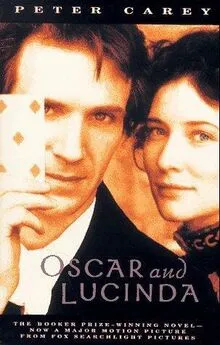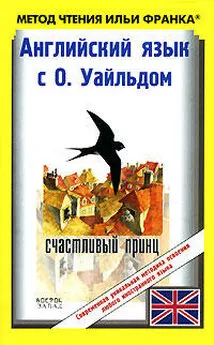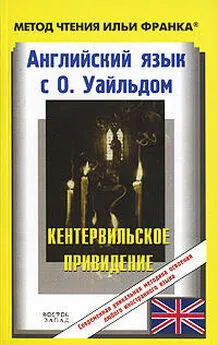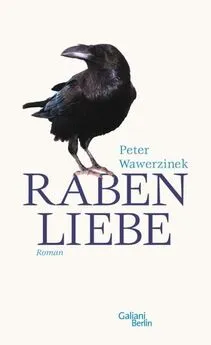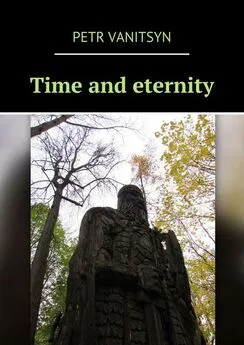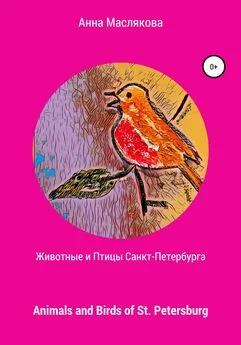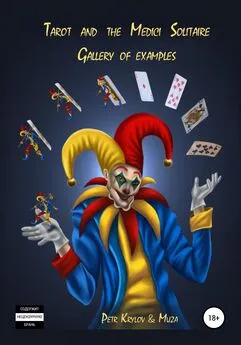Peter Carey - Oscar and Lucinda
- Название:Oscar and Lucinda
- Автор:
- Жанр:
- Издательство:Vintage Books
- Год:1988
- Город:New York
- ISBN:0-679-77750-4
- Рейтинг:
- Избранное:Добавить в избранное
-
Отзывы:
-
Ваша оценка:
Peter Carey - Oscar and Lucinda краткое содержание
The Booker Prize-winning novel-now a major motion picture from Fox Searchlight Pictures.
This sweeping, irrepressibly inventive novel, is a romance, but a romance of the sort that could only take place in nineteenth-century Australia. For only on that sprawling continent-a haven for misfits of both the animal and human kingdoms-could a nervous Anglican minister who gambles on the instructions of the Divine become allied with a teenaged heiress who buys a glassworks to help liberate her sex. And only the prodigious imagination of Peter Carey could implicate Oscar and Lucinda in a narrative of love and commerce, religion and colonialism, that culminates in a half-mad expedition to transport a glass church across the Outback.
Oscar and Lucinda - читать онлайн бесплатно полную версию (весь текст целиком)
Интервал:
Закладка:
57
Oscar and Lucinda
forbidden him and he would not learn the names of these or see them through the microscope.
"Hello, little Oscar," his father said.
"Hello, Papa."
"I pray for you, little Oscar. Do you pray for me?"
"Yes, Papa."
Theophilus attempted a smile, but it could not hold firm and was sucked back under the shelter of the beard. He nodded, stooped, picked up the buckets and set off along the path towards his cottage, and such was the wind that, although he had seemed to approach silently, the sounds of his clanking buckets as he departed tortured his son's ears for longer than seemed possible. Theophilus knew that his son now assisted the Anglican at the socalled Eucharist. He wore a red cassock and white surplice and held the silver salver of blessed wafers. This image haunted him, continually. There was not an hour when he did not see it ten times, in detail, in his mind's eye. But now, above Combe Pafford, he carried away the vision of his son's boots. They were scuffed and scratched and gone white at the toes. They were not cared for. The lace of the right boot had been broken and had not been replaced-it was tied up in a mean little knot three eyelets short of the top.
18
The Thirty-nine Articles
"When you are before the Provost of Oriel," said Mr Stratton, "it will not be pleasant like this." He gestured around the area of grass he had scythed. Indeed, it was pleasant. It was the third Sunday after Trinity and warm and sunny. If there were thistles in amongst the grass they did not show. The sundial was at last rescued from its wilderness and showed the hours. Butterflies cast light, lopsided shadows. Mr Stratton lay on his rug upon the grass and 58
The Thirty-nine Articles
shaded his eyes with his hand as he peered towards Oscar.
Oscar sat on a straight-backed chair. He had been invited to share the rug, but he preferred to sit with his face in shadow.
'It will be pleasant in its own way/' said Mrs Stratton who had stood up again and was pacing up and down-she could not seem to help herself-inside the hedge. "It will be pleasant in its way. You will take tea."
"It will be pleasant," agreed Mr Stratton, "but they have not forgotten Dr Pusey, you know. They will be rigorous in their examining."
"They will be rigorous," agreed Mrs Stratton, "but they will notsurely not, Hugh-expect a parrot."
Mr Stratton grunted-his back was bad-he could not find a good position. "At Trinity, perhaps."
"But not at Oriel."
"No."
"And he must not expect, Hugh, it will be like his catechism. He must know the land around the subject as it were. Do you understand me, Oscar?"
"Yes," said Oscar. His trousers were cutting in between his legs. He was growing out of the clothes he had arrived in. House martins flew to and fro above his head to their nest inside the gable of the house.
He did not like it when Mrs Stratton started talking, as she often did, about the "land around the subject." When she spoke like this she would-she was doing it now-begin to pace. Oscar saw this land in his mind's eye-it was full of swamps and ditches. There were areas of tall grass and thick mist. You could get lost in the land that Mrs Stratton was so keen for him to enter. He wished only to believe in the Thirty-nine Articles of Faith. He was ready to believe in them as he believed in the Bible. And when Mrs Stratton wished to drag him out into the marshy "land around the subject" he would sit up straight in his chair and stretch his face into a smile. Mrs Stratton picked up her big blue skirt in one hand as she strode across the rough, scythed grass. She did not seek to confuse her husband's pupil. She merely wished to question whether divine grace is directly given or whether it must be sought from scripture. Her husband sipped barley water. The pupil smiled at her attentively. Mrs Stratton was very happy. Oscar's smile was a mask on his face. He tried not to hear a word the woman spoke. She brought doubt and argument. He wanted only certainty. He blocked her out. He silently recited 59
Oscar and Lucinda v
the Athanasian Creed, the Nicene Creed, the Apostles' Creed.
Mrs Stratton galloped across the "land around." She sought the high ground, then abandoned it. She plunged into ditches and trotted proudly across bright green valleys. She set up her question, then knocked it down-she argued that her own question was incorrect. She set a light to it and watched it burn. Divine grace, she now proclaimed, was neither sought nor given. Oscar's face hurt from smiling.
Mrs Stratton walked as far as the quince tree and then came back to proclaim that divine grace was to be proposed by the Church and proved by the individual. She argued brightly with her husband on this point, waving her hands up and down as if conducting music. Oscar found it almost unbearable, and yet-it was obvious-the Strattons were enjoying themselves immensely. Mr Stratton called for Mrs Millar to brew fresh tea on three occasions and did not once worry about how much they had left and how long that might last. Mrs Stratton said that we must use our judgement in the determination of doctrine. She also said it was a sin to doubt.
She also said that doubt was the highest state for a Christian.
Oscar held on, like a frightened boy on a high mast in a big sea.
19
Christian Stories
My father, my mother, my brother, my sister and11 believed the following: 13*;^; The miracle of the loaves and the fishes. ' — ;
The miracle of the virgin birth.
All those miracles involving the healing of the sick and the driving out of demons. — «. *
We believed Jesus raised Lazarus from the dead.
60
Palm Sunday in New South Wales
We believed God spoke from the burning bush.
We believed Moses' rod turned into a serpent.
We believed Aaron's rod turned into a serpent.
We believed the river turned to blood.
We believed God sent the plague of frogs.
We believed God sent the plague of lice.
We believed God sent the plague of murrain. «
Of boils.
Of hail.
Of locusts.
We believed God took the firstborn of the Egyptians.
We believed the story of Jonah and the whale.
We believed Lot's wife was turned into a pillar of salt.
We believed God parted the waters of the Red Sea.
We believed Jesus walked on the Sea of Galilee, that he turned water into wine, that he rose from the dead and ascended into Heaven.
We had none of the doubts of the 1860s. At Christmas we made a star of Bethlehem from cardboard and silver paper.
20
Palm Sunday in New South Wales
They did not have proper palms at home in Exeter. But in Parramatta there were two kinds of palms with which to decorate the church and Elizabeth Mullens, ten years old, just arrived in the colony, was excited.
The children from the Sunday School were to decorate the church. This was not the custom at home. It was the custom here. They waited in the street while the men unstrapped the palm leaves from their cart and threw them on to the street.
There was Letty Savage, the daughter of Dr Savage, and her two
61
Oscar and Luanda
younger brothers. Letty Savage had held Elizabeth's hand and already told her two secrets. There was the Mayor's son, a small pale boy and very quiet. There were two pretty daughters of the clergyman. They were all from good families, and all well behaved. They stood still by the cart, but not too close, and did not talk and giggle.
Elizabeth would never know why she did what she did. It was excitement. It was getting ready for Easter in such warm sunshine. It was wishing Miss Ahearn, the Sunday School teacher, to know that Elizabeth knew all about Palm Sunday.
When the cart drew away she picked up a palm leaf and waved it. She was not boisterous, rather tentative in fact. She waved reverently, as if she were in Jerusalem on that day. There was a man-she could see him, would always see him-with a broad black beard and small jug ears, riding a little fat-bellied horse down Church Street.
All she meant to do was lay the palm beneath the horse's feet.
"Hosanna," she cried-afterwards her voice would sound shrill and silly in her memory-"Hosanna in the highest."
All her life she saw what happened: the horse rearing, the man's mouth open, the dreadful trajectory. The noise his head made was as definite as a walnut cracking. The doll was purchased from the jam jar, or one of the jam jars, for in the earth-floored hut in New South Wales in which Lucinda Leplastrier was born there were a great number of jam jars, some of them visible, some of them not. The less important ones-thick, dumpy, heavy with ha'pennies and farthings, squat toads, unkissed by silversat on the twisted mantel beside the heirloom clock. There were two of these, the bluish one for the plate at church, the scratched green one for stamps and jam and other luxuries; these jars were never full. But there were other taller jars tucked away behind the cast-iron stove, and several others inside the wattle and daub walls, their exact location hidden by the dried mud and one would think, looking at the place, that this particular piece of mud was a part of the daub, or, even if you arrived when it was fresh, that it was nothing but a draught hole her papa had filled as he had filled so many others, with old newspaper and mud.
There were jam jars hidden behind the handsome books her mother dusted-always in the middle of some other task (making white sauce, cutting up the soap into square cakes on the central table), a flick of a rag, whisk, whoosh-a lizard's tongue licking the white clay dust off Carlyle, Dostoevsky, Seneca, Dickens, Tolstoy, John Stuart Mill, and the novels of her old friend Marian Evans behind whose affectionately autographed books there lay an ash-smelling jar filled with pennies and even threepences. This was the birthday jar.
It was from this birthday jar that the doll had come, and sometimes it seemed it was against her mother's wishes-for she was often sharp with Lucinda when she held the doll against her breastand yet sometimes it seemed the doll must have been her mother's idea, for her father would, when he was tired or depressed about their lack of headway with the farm, or the ignorance of their neighbours, tease her mother about her love of luxury. This meant the doll. There had been no other luxury.
The doll was her ninth birthday present. It had come in a ship across the world, just as her mama and papa had. She was very pretty with bright blue eyes and corn-yellow hair. Her cheeks were as smooth as china, and cool against your neck on a hot day. The doll had been purchased by Marian Evans who had gone in a coach to a great exhibition, especially to buy it. And that time Lucinda-much impressed by what she called the "expedition"-did not know what an exhibition really was, but it later occurred to her that the doll must have come from the building she was to so admire in her adult life-the Crystal Palace.
On the day she took Dolly to play over on the back creek, she wrapped her in a white crocheted shawl that she took, without permission, from the Baby Drawer. She wrapped the doll in the shawl because she knew-although her brothers had all died before they were old enough for her to remember them clearly-how it was you should treat a babe in arms.
"There is a nasty wind blowing," she told the doll. Her mother did not approve of her speaking with dolls. Had she heard her, she would have said it was 'limiting." Her mother, however, was not therehad been called to help "the poor silly girl" (Mrs O'Hagen) have a baby, and Lucindawho clearly remembered the last occasion Mrs O'Hagen had given birth-knew there would be no more lessons today. To reach the back creek one had first to cross the other creek-really it was a river-behind the house. There were stepping stones across this creek, but they were wobbly and awkward and shifted their position after every rain. She wore her Wellingtons. She also carried the glue-pot she had "borrowed" from her father's workbench, thus establishing beyond doubt that the incident that took place when she finally crossed the twenty-acre paddock and reached the place where tea-coloured water ran across a bed of yellow sand, that the operation she there performed could hardly be seen as impulsive. When her mild and careless father, in a most uncharacteristic temper, called her "secretive" and "wilful" he was only in error to the extent that he did not really believe what he was saying.
Читать дальшеИнтервал:
Закладка:
